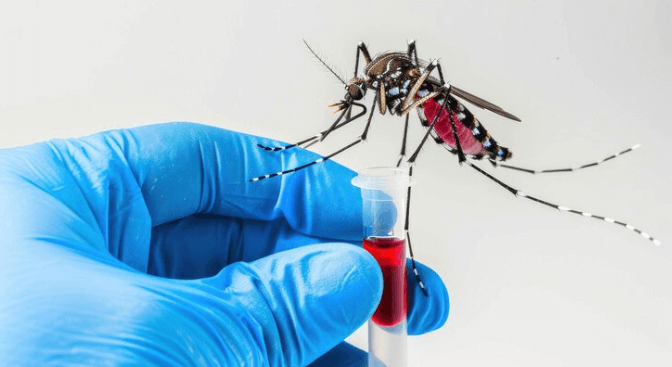Dengue fever is one of those diseases that can sneak up on you without any warning. This tropical disease, spread primarily by mosquitoes, has become increasingly common in urban areas. If you live in a city like Delhi, where the weather fluctuates and mosquitoes breed, it is important to be aware of the symptoms of dengue and know when to get tested. But how can you know when it is time to get a dengue blood test done? Let’s take a look at the key symptoms that can ring alarm bells.
What Is Dengue Fever?
Dengue fever is caused by the dengue virus, which is spread by the bite of an infected Aedes aegypti mosquito. Once you’re bitten, symptoms can appear within 3 to 14 days. The illness can range from mild to severe, and in some cases, it can lead to complications such as hemorrhagic fever or dengue shock syndrome, which are life-threatening.
Recognizing the Early Symptoms
At the onset of dengue, the symptoms can resemble other viral infections like the flu. However, there are some distinct signs that set it apart. Here’s what you should look out for:
- High Fever
A sudden high fever is one of the earliest symptoms of dengue. It often starts suddenly and can rise to 104°F. If you experience an unusually high fever along with other symptoms, you should consider getting a dengue blood test. - Severe Headaches
Headaches, especially around the eyes, are a hallmark of dengue. The pain can be severe and difficult to alleviate with over-the-counter medications. The discomfort can be so severe that it can interfere with daily activities. - Pain Behind the Eyes
If you have ever had dengue, you know that the pain behind your eyes can be unbearable. This symptom is quite specific to dengue fever and can serve as an important signal for doctors. If you are experiencing this kind of pain, do not ignore it. - Muscle and Joint Pain
It is common for dengue to cause aches and pains throughout the body, including severe joint and muscle pain. It is often described as “break-bone fever” because of the intensity of the pain. - Rash and Skin Changes
About 3 to 4 days after the fever begins, a rash might appear. It typically starts on the chest and spreads to the arms and legs. The rash can look like tiny red spots or splotchy red patches. - Nausea and Vomiting
If you find yourself feeling nauseous or vomiting along with the other symptoms, it’s another strong indicator of dengue. This can make it difficult to keep fluids down, leading to dehydration.
When Should You Get Tested?
If you’re experiencing several of these symptoms together, it’s a good idea to get a dengue blood test. Testing is especially important if:
- The fever lasts for more than 48 hours.
- You experience a sudden onset of severe abdominal pain or persistent vomiting.
- You notice unusual bleeding, such as nosebleeds or gums bleeding, which could signal a severe form of dengue.
- You have a history of dengue or live in an area prone to outbreaks.
Testing is the only way to confirm if you have dengue. Healthcare professionals will typically recommend a dengue blood test to measure the presence of the virus and its impact on your body.
Real-Life Example
Let’s talk about real life. I recently spoke to a friend named Priya who lives in East Delhi. Last year she started getting fevers, severe headaches and joint pains that wouldn’t go away. At first she thought it was just a cold or a viral infection, but when the fever persisted for several days she decided to visit a clinic.The doctor immediately recommended a dengue blood test in Delhi. Priya’s test came back positive, and she was able to start treatment right away. Her timely diagnosis prevented her from developing more severe complications.
Final Thoughts
Although dengue can be serious, early detection and prompt treatment can help you recover quickly. If you are experiencing symptoms that resemble dengue fever, do not hesitate to get tested. A dengue blood test can give you peace of mind and ensure that you get the right treatment as soon as possible.




